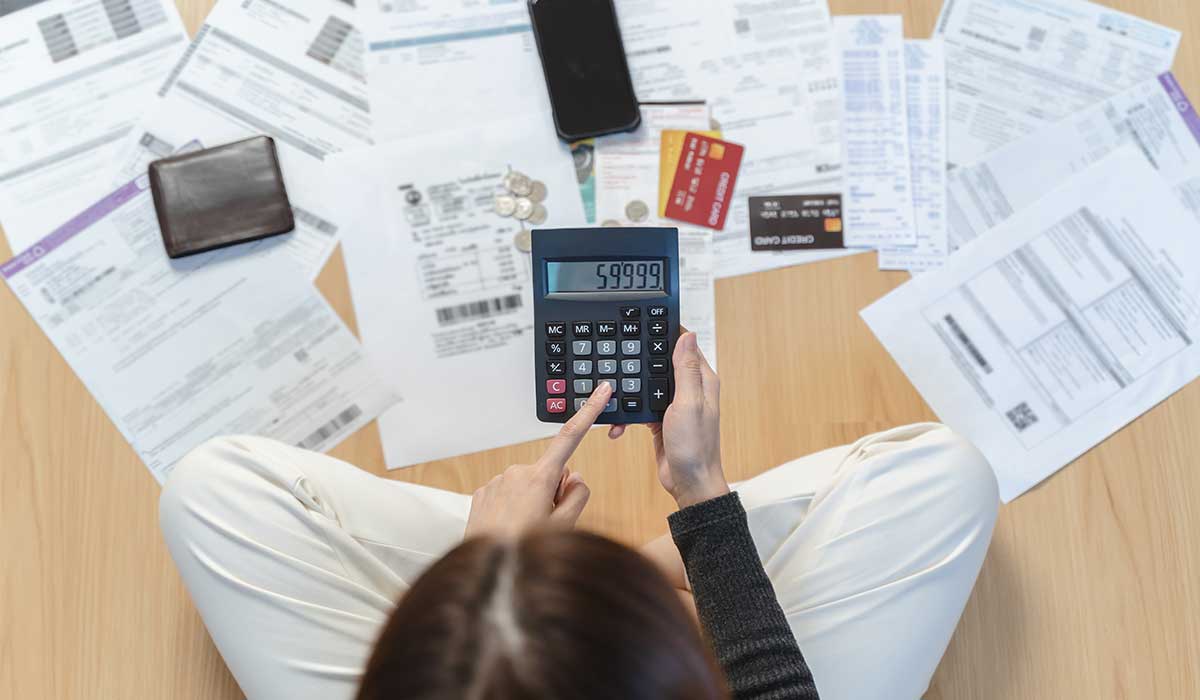Debt Consolidation in Singapore
Debt consolidation plan is a financial solution that may hold the key to simplifying your monthly payments and helping you become debt-free faster. Here, you will learn the ins and outs of Debt Consolidation Plans, and how they can be tailored to suit your specific needs.
Here at OMY, discover the following:
- What Is A Debt Consolidation Plan And How Does It Work?
- Advantages Of Debt Consolidation Plan
- When Should I Apply For Debt Consolidation?
- How Much You Can Borrow from The Debt Consolidation Plan
- Who Can Apply For The Debt Consolidation Loan in Singapore?
- How Do I Qualify For Debt Consolidation In Singapore?
- Where Can I Apply For A Debt Consolidation Plan?
- Debt Consolidation Loan Tips You Should Know
- Frequently Asked Questions
What Is A Debt Consolidation Plan And How Does It Work?
A Debt Consolidation Plan is a financial product designed to assist individuals to manage and repay their outstanding unsecured debts more efficiently. Unsecured debts typically encompass credit card debts, personal loans, and other forms of credit that lack collateral backing.
The primary aim of a Debt Consolidation Plan is to put multiple debts into a single loan. This streamlines the repayment process and offers borrowers a structured and manageable payment schedule. Instead of making multiple payments to various creditors with varying interest rates and due dates, borrowers need only make one monthly payment to the financial institution providing the debt consolidation loan.
Advantages Of Debt Consolidation Plan
Here are some advantages of a Debt Consolidation Plan
It streamlines your funds
When you take out a consolidation loan Singapore, you no longer have to worry about juggling multiple payments and due dates. With a Debt Consolidation Plan, you have a single payment to make each month. This can simplify your financial management and provide a clearer overview of your expenses.
It helps you save in interest payments over time
Credit card debts and personal loans often have high-interest rates, which can lead to a significant amount of money spent on interest payments alone. By consolidating these debts into a single loan with a lower interest rate, borrowers may be able to save money in interest payments over the repayment period. This makes debt consolidation plan Singapore extremely beneficial.
It can reduce your monthly payments
When payments for a debt consolidation plan are made consistently and on time, it can show loan providers that the borrower is responsible and reliable. As a result, a Debt Consolidation Plan can help improve your credit score over time. This can be especially important for those with poor credit, as it offers a path to rebuild credit and establish a positive credit history.
It gets rid of your debt faster
When you take out a Debt Consolidation Loan, you have the opportunity to negotiate a shorter repayment period. This means that you may be able to pay off your outstanding debts faster than if you continued to make individual payments to each creditor. As a result, you may be able to become debt-free sooner and without accruing additional interest or fees.
When Should I Apply For Debt Consolidation?
Debt Consolidation Plans can be a helpful financial tool for individuals who are struggling to manage their multiple debts. However, it is important to assess your financial situation and determine whether a Debt Consolidation Plan is the right solution for you. Here are some factors to consider before applying for a Debt Consolidation Plan:
You’re struggling with your outstanding debts
Take stock of your outstanding debts. If you find it challenging to manage all your debts with varying interest rates, due dates, and payment amounts, a debt consolidation plan can simplify your financial obligations.
You have high interest debts
If you have outstanding debts with high-interest rates such as credit card debts, consolidating them into a debt consolidation plan can potentially lower the overall interest rate. Considering this, this debt buster Singapore trick can save you money in the long run and make your monthly payments more manageable.
You’re finding it hard to make payments
Are you unable to make timely payments on your debts? A debt consolidation plan can give you a more structured and affordable repayment schedule. This will free you from worrying about late fees, penalties, and potential damage to your credit score.
You need financial help
Are your multiple debts causing financial stress and impacting your overall quality of life? If so, a debt consolidation plan will enable you to regain control of your finances.
You want to improve your credit score
Debt consolidation Singapore can positively impact your credit score if you make consistent and on-time payments on the new loan.
You want to avoid bankruptcy
If you are on the brink of bankruptcy due to overwhelming debts, a debt consolidation plan can be a viable alternative to financial freedom. It allows you to address your debts without resorting to extreme measures like bankruptcy, which can make way for severe and long-lasting consequences on your financial future.
You just want to simplify your finances
If you prefer a more straightforward approach to managing your finances, a debt consolidation plan can be an attractive option. With only one monthly payment to focus on, you can organize your budget better.
How Much You Can Borrow From The Debt Consolidation Plan
The amount you can borrow from a Debt Consolidation Plan will depend on various factors, including your credit score, income, and outstanding debts.
Generally, loan providers for debt consolidation plan Singapore will offer you a loan amount that covers the total amount of your outstanding debts, plus any additional fees and charges. However, it is important to note that you may not qualify for the total amount you need, and it is crucial to borrow only what you can afford to repay.
Who Can Apply For The Debt Consolidation Loan in Singapore?
To apply for a debt consolidation loan in Singapore, you should meet the income requirement of banks which is S$30,000 and S$120,000. The minimum amount may be higher for self-employed individuals and commission-based earners. You should also have interest-bearing balances on your loans that are 12 times your monthly salary.
You should also have only one active debt consolidation plan at a time. However, you may refinance your debt consolidation loan with another bank after three months.
Keep in mind that debt consolidation plan options are only available to Singaporeans and PRs whose net assets do not exceed S$2 million.
How Do I Qualify For Debt Consolidation In Singapore?
Qualifying for debt consolidation in Singapore requires meeting the criteria set by loan providers. In addition to meeting the basic eligibility criteria, you should get the following documents ready:
- Credit Bureau report
- NRIC
- Income statements (latest 3 months)
- Latest credit card and unsecured loan statements
- Confirmation letters for unbilled principal balances
Where Can I Apply For A Debt Consolidation Plan?
Here’s a list of some banks and financial institutions in Singapore where you can apply for a Debt Consolidation Plan:
- American Express
- Bank of China
- CIMB
- Citibank
- DBS
- Diners Club
- HL Bank
- HSBC
- Standard Chartered
- Maybank
- OCBC
- RHB Bank
- Trust Bank
- UOB
Debt Consolidation Loan Tips You Should Know
Before applying for a Debt Consolidation Loan, it is important to consider some tips to ensure that you make the most of this financial tool. Here are some tips to keep in mind:
Make sure you get all your documents ready
Having all the necessary documents prepared ahead of time can help streamline the application process and increase your chances of approval for a consolidation loan Singapore. Have your credit bureau report, NRIC, income statements, credit card and unsecured loan statements, and confirmation letters for unbilled principal balances ready before applying.
Don’t miss payments
Once you have received your debt consolidation loan, make timely payments. Missing any payments for your debt consolidation plan can result in further damage to your credit score and can hinder your journey toward financial freedom. Set up reminders or automatic payments to ensure that you don’t miss any payments.
Make a realistic budget plan
Creating a realistic budget plan is essential when it comes to successfully paying off your debts through a debt consolidation plan. Start by listing all your monthly expenses and income, including your monthly payment for the consolidation loan. Then, identify areas where you can cut back on expenses and allocate more funds to pay off your debts. Stick to this budget plan to ensure that you make consistent payments towards your debt consolidation loan and avoid falling back into the cycle of debt.
Reassess your spending habits
In order to make the most out of your debt consolidation plan, reassess your spending habits. Take a hard look at your expenses and identify areas where you can cut back. This can include cancelling unnecessary subscriptions, eating out less, and avoiding impulse purchases.
By making a conscious effort to spend less, you can free up more funds to put towards paying off your debt consolidation plan and achieving financial freedom.
Frequently Asked Questions
Still got questions about debt consolidation loans in Singapore? We’ll answer them below.
Does debt consolidation affect your credit score?
Yes, getting a debt consolidation loan can affect your credit score. Initially, your score may drop a few points as you apply for the loan and the loan providers performs a hard credit inquiry. However, after you receive the loan and start making consistent payments on time, your credit score should gradually improve. In the long run, debt consolidation can actually help to improve your credit score by reducing your overall debt and making it easier to manage your finances.
Are there risks for debt consolidation?
Yes, there are risks associated with debt consolidation Singapore. One of the biggest risks is that individuals may end up taking on more debt than they can handle, leading to further financial trouble. Additionally, some debt consolidation plans may come with high interest rates or fees, which can make it difficult to pay off the loan. It's important to carefully consider the terms and conditions of any debt consolidation plan before signing up for it.
What happens when you go into debt consolidation?
When you go into debt consolidation Singapore, you are essentially taking out a new loan to pay off all your existing debts. This means that instead of having multiple creditors and monthly payments, you will now have only one creditor and one monthly payment.
It is hard to apply for a debt consolidation loan?
Applying for a debt consolidation plan may seem daunting, but it doesn't have to be. As long as you have all the necessary documents ready and meet the eligibility criteria, the application process should be relatively straightforward.
Is debt consolidation a good idea for everyone?
Debt consolidation is not the best option for everyone. Carefully assess your financial situation and consider factors such as your income, expenses, and existing debt before deciding to take on a debt consolidation loan. Additionally, if you are struggling with deep-seated spending issues or underlying financial problems, it may be more beneficial to seek the help of a financial advisor or counsellor to address these issues. Overall, debt consolidation can be a useful tool for consolidating debt and improving your financial situation, but it's important to approach it with caution and careful consideration.
Are individuals under the RAS scheme eligible for debt consolidation loans?
Yes. Outstanding amounts on RAS will be transferred to the debt consolidation loan upon approval.
Can I apply for a debt consolidation loan with a bank even though I'm not a customer?
Yes. You can still apply for a debt consolidation loan with a bank even if you're not an existing customer. However, being an existing customer may give you an advantage in terms of eligibility and interest rates. This also means you will have a higher chance of getting approved for a debt consolidation plan.
More from OMY: Best Personal Loan for Low Income Earners in Singapore







